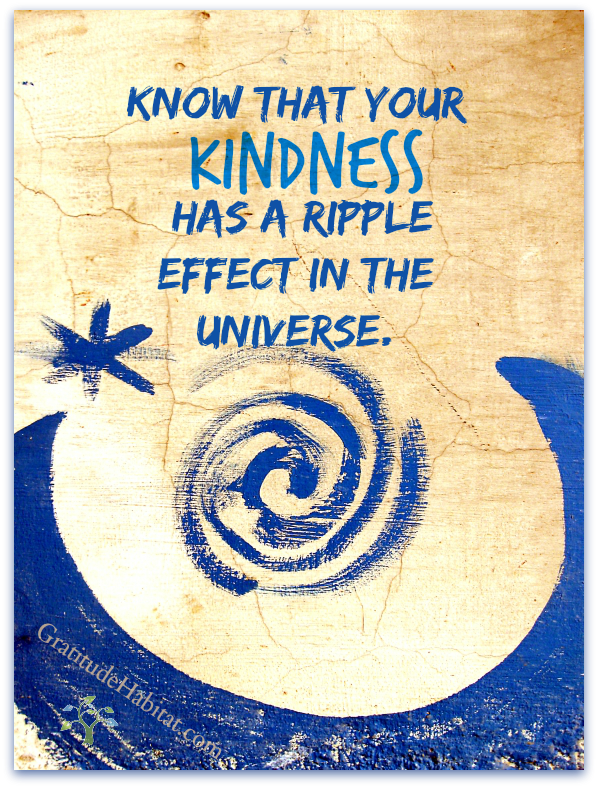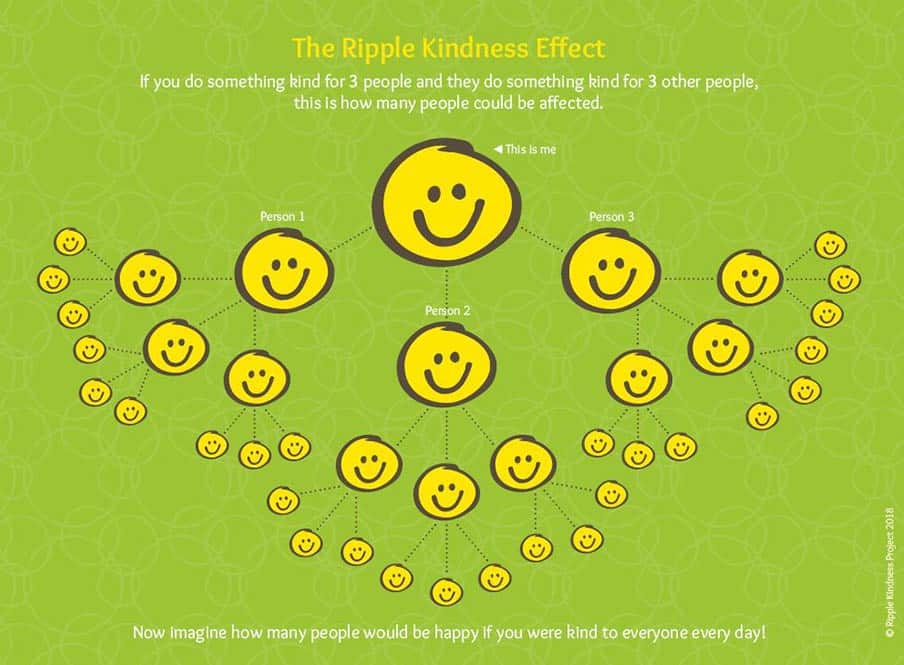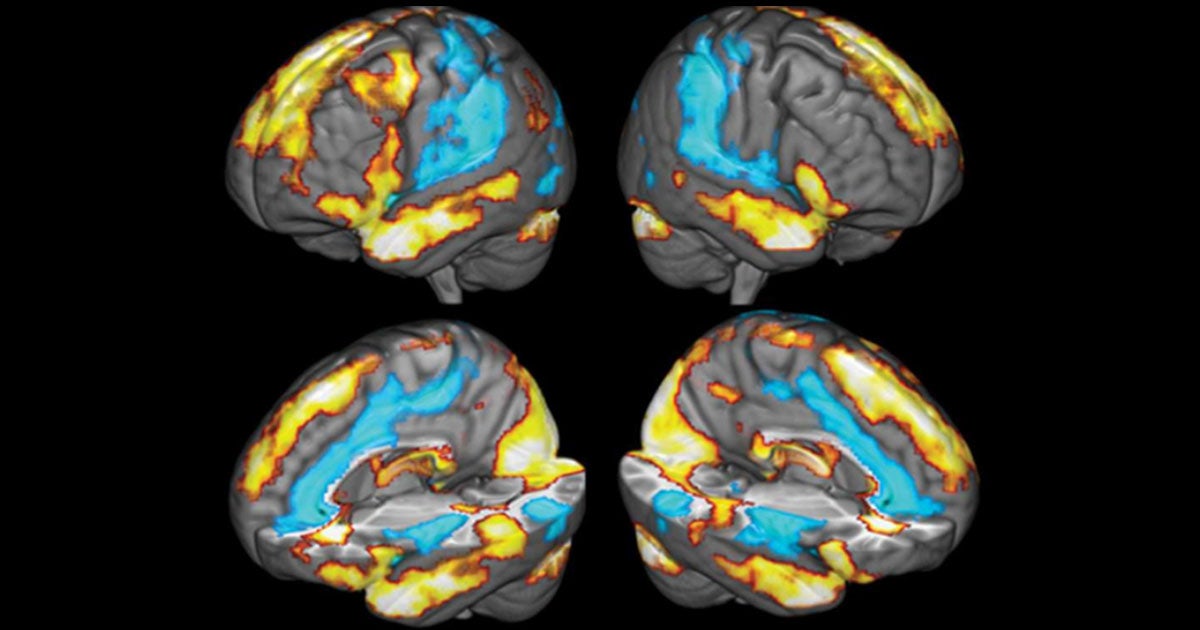Have you ever noticed how one small act of gratitude can have a ripple effect, spreading positivity and kindness to those around you? Whether it’s saying thank you to a colleague at work, expressing appreciation to a loved one, or simply feeling grateful for the little things in life, the power of gratitude is truly remarkable. In this article, we will explore the ripple effect of gratitude and how it can create a more harmonious and fulfilling life for both yourself and those you interact with. So, grab a cup of tea and let’s dive into the magical world of gratitude!

This image is property of gratitudehabitat.com.
1. What is Gratitude?
Gratitude is more than just saying “thank you.” It is a deep appreciation for the good things in your life, both big and small. It involves recognizing the blessings and expressing thanks for them. Gratitude is a powerful mindset that can transform your outlook and bring about happiness and contentment.
1.1 Definition of Gratitude
Gratitude can be defined as the quality of being thankful and showing appreciation for the positive aspects of life. It is about recognizing the goodness in the world and acknowledging the kindness, generosity, and support you receive from others. Gratitude is not a passive attitude, but an active practice that involves actively looking for the good and expressing appreciation for it.
1.2 Importance of Practicing Gratitude
Practicing gratitude has numerous benefits for both your mental and physical health. Research has shown that gratitude can enhance happiness, reduce stress and anxiety, lower blood pressure, improve sleep quality, and boost overall well-being. By cultivating gratitude, you become more mindful and present in the moment, savoring the good that exists in your life.
1.3 Ways to Cultivate Gratitude
There are several simple yet effective ways to cultivate gratitude in your everyday life. Keeping a gratitude journal, where you write down three things you are grateful for each day, can help shift your focus towards the positive. Taking time to express appreciation to others through handwritten notes, emails, or verbal thank yous can also foster a sense of gratitude. Finally, practicing mindfulness and being fully present in the current moment can help you appreciate the small joys and blessings that often go unnoticed.
2. The Power of Gratitude
Gratitude has a powerful impact on both our physical and mental well-being. Let’s delve into some of the scientific benefits and psychological impacts of practicing gratitude.
2.1 Scientific Benefits of Gratitude
Scientific research has established a strong connection between gratitude and overall health. Studies have shown that individuals who regularly practice gratitude experience lower levels of stress, improved heart health, better immune function, and reduced symptoms of depression. Gratitude can also lead to increased energy levels, enhanced cognitive function, and better sleep quality.
2.2 Psychological Impact of Gratitude
Gratitude has profound psychological effects. It can create a positive feedback loop, leading to increased happiness and life satisfaction. When we express gratitude, our brain releases dopamine and serotonin, the feel-good neurotransmitters. This flood of positive emotions not only enhances our mood but also strengthens neural pathways associated with well-being.
2.3 Improving Mental Well-being through Gratitude
Practicing gratitude can significantly improve our mental well-being. It helps to reframe negative thoughts and shift our focus towards the positive aspects of life. By cultivating a grateful mindset, we become more resilient in the face of challenges, experience greater emotional balance, and develop a sense of optimism. Gratitude also encourages mindfulness, enabling us to fully appreciate and enjoy the present moment.

This image is property of www.kellybuckley.com.
3. Gratitude and Relationships
Gratitude plays a crucial role in nurturing and strengthening our relationships with others. Let’s explore how gratitude can enhance communication, connection, and forgiveness within relationships.
3.1 Strengthening Relationships with Gratitude
Expressing gratitude to our loved ones can deepen our bonds and foster a sense of appreciation and respect. By acknowledging the efforts and kindness of others, we make them feel valued and understood. Regularly expressing gratitude can create a positive atmosphere within relationships, enhancing mutual trust and intimacy.
3.2 Enhancing Communication and Connection
Gratitude facilitates open and effective communication. When we express gratitude to others, we are more likely to listen actively and empathetically. This creates an environment where people feel safe and comfortable sharing their thoughts and emotions. Gratitude also helps us recognize the importance of collaboration and teamwork, leading to stronger connections within our personal and professional relationships.
3.3 Fostering Forgiveness with Gratitude
Gratitude has the power to heal and foster forgiveness. By expressing gratitude towards those who have hurt or wronged us, we can shift our perspective and find empathy for their actions. Gratitude allows us to let go of resentments and grudges, leading to increased compassion and understanding. It enables us to move forward in our relationships with a renewed sense of harmony and forgiveness.
4. Gratitude in the Workplace
Gratitude has significant implications for the workplace, positively impacting employee morale, productivity, and overall work environment. Let’s explore how gratitude can create a positive work culture and be expressed by leaders.
4.1 Boosting Employee Morale and Productivity
When employers cultivate a culture of gratitude, employees feel valued and appreciated, leading to increased job satisfaction and engagement. Recognizing and acknowledging employees’ efforts and contributions can boost morale and motivate them to perform at their best. Gratitude in the workplace promotes a sense of belonging and fosters a positive work environment where individuals thrive.
4.2 Creating a Positive Work Environment
Gratitude fosters positivity and camaraderie among colleagues. By expressing gratitude towards coworkers, we create a supportive and collaborative work environment. Gratitude promotes a sense of unity and teamwork, enhancing communication and problem-solving. It contributes to a workplace culture where employees feel respected, connected, and committed to their organization’s goals.
4.3 Expressing Gratitude as a Leader
Leaders who practice gratitude have a profound impact on their teams. By expressing appreciation for their employees’ hard work and achievements, leaders create an environment of trust and loyalty. Gratitude strengthens the leader-follower relationship and encourages employees to go the extra mile. When leaders demonstrate gratitude, they inspire their team members to take pride in their work, resulting in increased productivity and improved performance.
This image is property of miro.medium.com.
5. Gratitude for Personal Growth
Gratitude is a powerful tool for personal growth and development. Let’s explore how it can help develop self-awareness, cultivate resilience, and harness the power of goal achievement.
5.1 Developing Self-Awareness through Gratitude
Practicing gratitude helps us become more self-aware by shifting our attention from what is lacking to what we already have. By acknowledging our blessings, strengths, and accomplishments, we develop a greater understanding of ourselves. Gratitude allows us to recognize our values, priorities, and aspirations, paving the way for personal growth and self-improvement.
5.2 Cultivating Resilience and Optimism
Gratitude plays a vital role in cultivating resilience and optimism. When faced with challenges, practicing gratitude helps us focus on the lessons learned and the growth opportunities presented. It allows us to reframe setbacks as valuable experiences and embrace a more positive outlook. Gratitude nurtures our ability to bounce back from adversity and view obstacles as stepping stones towards personal growth.
5.3 Harnessing Gratitude for Goal Achievement
Gratitude is a powerful tool for achieving our goals. By expressing gratitude for the progress we have made, we reinforce our motivation and drive. Gratitude helps us stay focused on the present moment, enhancing our ability to take meaningful action towards our goals. It also fosters a sense of abundance and possibility, attracting opportunities and resources that align with our aspirations.
6. Acts of Kindness and Gratitude
Kindness and gratitude go hand in hand, creating a ripple effect of positivity and goodwill. Let’s explore the connection between acts of kindness and gratitude, the impact of random acts of kindness, and the concept of paying it forward.
6.1 The Connection Between Kindness and Gratitude
Practicing kindness ignites feelings of gratitude within ourselves and in those we interact with. Performing acts of kindness, both big and small, fosters a sense of interconnectedness and empathy. By showing kindness to others, we embody gratitude and reinforce the belief that we are all deserving of compassion and support.
6.2 Random Acts of Kindness
Engaging in random acts of kindness has the power to transform lives. Simple gestures, such as buying a cup of coffee for a stranger or helping someone carry their groceries, can brighten someone’s day and create a ripple effect of positivity. Random acts of kindness not only make others feel appreciated and seen, but they also cultivate gratitude within us as we witness the impact of our actions.
6.3 Paying It Forward
Paying it forward is the act of responding to kindness by extending kindness to others. When we experience acts of kindness, whether directed towards us or witnessed, we have the opportunity to pass on the goodwill. By paying it forward, we perpetuate a cycle of gratitude and kindness, spreading positivity and making a difference in the lives of others.

This image is property of miro.medium.com.
7. Gratitude in Challenging Times
Practicing gratitude becomes even more important during challenging times. Let’s explore how finding gratitude in difficult situations, coping with stress and anxiety through gratitude, and cultivating a positive mindset can help us navigate challenging circumstances.
7.1 Finding Gratitude in Difficult Situations
While it may seem challenging, finding gratitude in difficult situations can have a transformative effect on our well-being. Recognizing the lessons, growth opportunities, and silver linings amidst adversity allows us to cultivate resilience and find meaning in the face of hardship. By reframing our perspective and focusing on what we can be grateful for, we can navigate difficult situations with grace and strength.
7.2 Coping with Stress and Anxiety through Gratitude
Gratitude serves as a powerful tool for managing stress and anxiety. When we actively focus on the positive aspects of our lives, we shift our attention away from worries and anxieties. Gratitude helps us cultivate a sense of calm and perspective, reminding us of the things that bring us joy and contentment. By practicing gratitude, we develop emotional resilience and reduce the impact of stress on our well-being.
7.3 Cultivating a Positive Mindset through Gratitude
Gratitude is a catalyst for cultivating a positive mindset, particularly during challenging times. By intentionally seeking out the good and focusing on what we are grateful for, we train our minds to look for the positive. A positive mindset enables us to approach difficulties with optimism and resourcefulness. Cultivating gratitude during tough times nurtures our ability to maintain a positive outlook, fostering resilience and adaptability.
8. Teaching Gratitude to Children
Instilling gratitude in children from an early age is a gift that will benefit them throughout their lives. Let’s explore the importance of gratitude education, age-appropriate gratitude practices, and nurturing empathy and kindness in children.
8.1 The Importance of Gratitude Education
Gratitude education is crucial for the development of children’s social-emotional skills and overall well-being. It teaches children to appreciate and show gratitude for the people and things in their lives, promoting positive relationships and empathy. By incorporating gratitude into education, we equip children with the tools to navigate life’s challenges with resilience and a positive mindset.
8.2 Age-Appropriate Gratitude Practices
Gratitude practices can be tailored to suit the age and developmental stage of children. For young children, engaging in gratitude rituals such as expressing thanks before meals or bedtime can help instill a sense of appreciation. Older children can benefit from keeping gratitude journals or engaging in acts of kindness. It is essential to model gratitude and provide opportunities for children to express their appreciation and share their experiences with gratitude.
8.3 Nurturing Empathy and Kindness in Children
Gratitude plays a significant role in nurturing empathy and kindness in children. By teaching children to recognize and appreciate the kindness of others, we cultivate a sense of empathy and compassion. Encouraging acts of kindness and gratitude towards classmates, family members, and the wider community fosters a sense of belonging and connectedness. By nurturing empathy and kindness, children develop into caring and compassionate individuals.

This image is property of ripplekindness.org.
9. Spreading Gratitude in the Community
Gratitude has the power to create a positive ripple effect within communities. Let’s explore the impact of volunteer work, organizing gratitude initiatives, and sharing gratitude through social media.
9.1 Volunteer Work and Gratitude
Engaging in volunteer work provides an opportunity to express gratitude and make a meaningful difference in the community. By offering our time, skills, and resources to support those in need, we cultivate gratitude within ourselves and create positive change in the lives of others. Volunteering fosters a sense of connection and empathy, reminding us of the value of gratitude and the importance of giving back.
9.2 Organizing Gratitude Initiatives
Organizing gratitude initiatives within the community can spread positivity and inspire others to express their appreciation. Events centered around gratitude, such as gratitude walks, community gratitude boards, or gratitude workshops, provide platforms for people to come together and reflect on the blessings in their lives. By organizing and participating in gratitude initiatives, we create a sense of unity and foster a community culture of appreciation.
9.3 Sharing Gratitude through Social Media
Social media platforms offer an opportunity to amplify gratitude and spread positivity on a global scale. By sharing stories of gratitude, expressing appreciation for others, or participating in gratitude challenges, we inspire others to cultivate gratitude in their own lives. Social media can be a powerful tool for creating virtual communities focused on gratitude, encouraging connection, and fostering a supportive network of individuals committed to spreading positivity.
10. Introducing Gratitude into Daily Life
Incorporating gratitude into our daily lives is key to experiencing its transformative power. Let’s explore the benefits of creating a gratitude journal, morning and evening gratitude rituals, and finding gratitude in simple moments.
10.1 Creating a Gratitude Journal
Keeping a gratitude journal is a powerful practice to cultivate a grateful mindset. Each day, write down three things you are grateful for, big or small. This simple act of reflection helps shift your focus towards the positive aspects of your life. Over time, reading back through your gratitude journal can serve as a reminder of all the blessings and experiences that have brought you joy and appreciation.
10.2 Morning and Evening Gratitude Rituals
Incorporating gratitude rituals into your morning and evening routines can help set the tone for the day and promote a sense of closure in the evening. In the morning, take a few moments to reflect on three things you are grateful for, setting an intention for the day ahead. In the evening, express gratitude for the experiences and opportunities you had during the day. These simple rituals can help you start and end your day on a positive note.
10.3 Finding Gratitude in Simple Moments
Gratitude can be found in the ordinary moments of life. Practice being fully present and mindful of the simple joys that surround you. Take notice of the beauty of nature, savor a delicious meal, or appreciate a kind gesture from a stranger. By developing the habit of noticing and appreciating these moments, you can cultivate a deep sense of gratitude for the richness and abundance of everyday life.
In conclusion, gratitude has the power to transform our lives in countless ways. It enhances our mental and physical well-being, strengthens our relationships, fosters personal growth, and spreads positivity and kindness in our communities. By embracing a grateful mindset and incorporating gratitude practices into our daily lives, we have the opportunity to unleash our potential, find happiness and harmony within ourselves and with others. Let gratitude be the guiding force that brings out the best version of ourselves.


